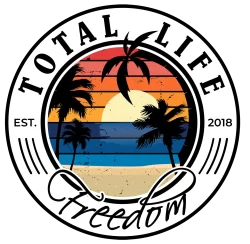Most of us have heard the term ESG at some point in the last few years. It’s usually referring to investments, but ESG should be for everyone. ESG stands for Environmental, Social and Governance. Sounds pretty simple right? Unfortunately, anything that requires a “For Dummies” book is more complicated than it sounds.
New Rules for ESG
The Securities and Exchange Commission has proposed rule changes for ESG. The new rule would require registrants to include certain climate-related disclosures in their registration statements and periodic reports. This includes information about climate-related risks that are reasonably likely to have a material impact on their business, results of operations, or financial condition, and certain climate-related financial statement metrics in a note to their audited financial statements. The required information about climate-related risks also would include disclosure of a registrant’s greenhouse gas emissions. These have become a commonly used metric to assess a registrant’s exposure to such risks.
If adopted, it would provide investors with consistent, comparable, and decision-useful information for making their investment decisions. It would provide consistent and clear reporting obligations for issuers,” said SEC Chair Gary Gensler.
Proposed Rule
The proposed rule changes would require a registrant to disclose more ESG related information. This covers the registrant’s governance of climate-related risks and relevant risk management processes. It would cover how any climate-related risks identified by the registrant have had or are likely to have a material impact on its business and consolidated financial statements, which may manifest over the short-, medium-, or long-term. It would cover how any identified climate-related risks have affected or are likely to affect the registrant’s strategy, business model, and outlook. And lastly the impact of climate-related events (severe weather events and other natural conditions) and transition activities on the line items of a registrant’s consolidated financial statements. There are also provisions for financial estimates and assumptions used in the financial statements.
The proposed rules also would require a registrant to disclose information about its direct greenhouse gas (GHG) emissions (Scope 1). It would also cover indirect emissions from purchased electricity or other forms of energy (Scope 2). In addition, a registrant would be required to disclose GHG emissions. This includes upstream and downstream activities in its value chain (Scope 3), if material or if the registrant has set a GHG emissions target or goal that includes Scope 3 emissions. The proposed rules would provide a safe harbor for liability from Scope 3 emissions disclosure. There’s also an exemption from the Scope 3 emissions disclosure requirement for smaller reporting companies.
It’s not going to fix things overnight
Under the proposed rule changes, accelerated filers and large accelerated filers would be required to include an attestation report from an independent attestation service provider. This covers Scopes 1 and 2 emissions disclosures, with a phase-in over time, to promote the reliability of GHG emissions disclosures for investors.
The proposed rules would include a phase-in period for all registrants. The compliance date dependent on the registrant’s filer status, and an additional phase-in period for Scope 3 emissions disclosure. Did you get all that? It’s kind of complicated but a good thing for the planet.
What about ESG for Everyone?
I think some people get scared off by ESG. It’s almost a black box within the investment community based on scores that are based on some secret sauce. If you just start with the basics, ESG can be pretty simple. Look out for mother nature. Treat everyone with respect. And have repeatable processes in place that make sense. If you can do these three things, then you are headed in the right direction.
The reality is that these are good things to focus on whether you are public company, a private company or even an individual. You can apply the rules to all of them.


